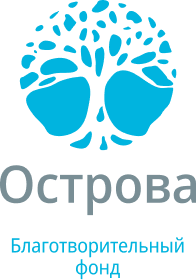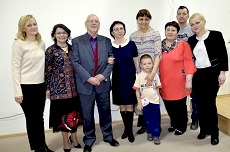At the beginning of 2017, parents of children with cystic fibrosis in Khanty-Mansiysk Autonomous District-Yurga had cause for grave concern: the region began to dispense micrazim instead of the life-saving medication, creon.
Patients with cystic fibrosis have to take pancreatic enzymes for life and in high dosages. In the Russian market, just as in other countries, a diverse range of pharmaceutical pancreatic enzymes is available. But for many cystic fibrosis patients, creon is the only medication that doesn’t cause side effects: this is evidenced by both various clinical studies and the actual experiences of patients.
In spite of the fact that micrazim also contains enzymes to improve digestion, when patients with cystic fibrosis take it, they may experience side effects such as digestive disorders, which can cause patients to lose between 2 to 5 kg in a week.
Without taking pancreatic enzymes, patients with cystic fibrosis are virtually unable to absorb nutrients. Given that nutritional status plays such a critical role in the lives of people diagnosed with CF and that the deterioration of this status will inevitably lead to complications, the patient community KhMAO-Yugra had every reason to sound the alarm.
The Second Breath patient organization decided to take active measures to deal with the situation. The parents sent letters to the Department of Health, prepared an appeal to the Commissioner for the Protection of Human Rights in KhMAO-Yugra, Natalia Strebkova, and consulted with staff from the Prosecutor’s Office for KhMAO-Yugra, given that the current medical policy posed a direct threat to the lives of both adult and juvenile patients.
Finally, in March, owing to the joint efforts of parents and the heads of the Nizhnevartovsk and Surgut cystic fibrosis centers, a round table was organized, with invitations being extended to representatives of the KhMAO-Yugra Department of Health, to Professor N. Kapranov and E. Amelina, Russia’s leading specialists in the treatment of children and adults with CF from Moscow, as well as to the parents of patients with cystic fibrosis. Ostrova Charitable Foundation helped to make this meeting possible by paying for E. Amelina’s travel and accommodation expenses.
At the round table, the doctors advocated for the right of patients to receive creon and original antibiotics, as well as therapeutic, high-calorie food, and made a strong case for assigning disability status for life. Taking full advantage of this opportunity, the invited experts from Moscow examined patients with cystic fibrosis who were able to make it to the reception, and adamantly stressed that creon is a life-saving drug for this group of patients that cannot be switched.
The voices of parents, patients, and concerned doctors were heard, and, on 22 May, a meeting of the formulary commission was held where a decision was made to provide children suffering with cystic fibrosis with medication under the specific brand name of creon.
Since June, the Department of Health has been procuring small batches of the life-saving drug, creon, which is being dispensed to patients.

